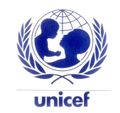The day’s program included:
- a presentation of expenditure policy work in FAD: the Expenditure Policy Division started by presenting the financial programming model that the IMF uses to analyze a country’s economic, fiscal, and monetary environment. It went on to provide an insight into expenditure policy TA, stressing its focus on efficiency and equity of public expenditure to promote growth and protect the poor, to rationalize expenditure in the wake of crises (such as the current global economic crisis), and to control spending through progressive fiscal consolidation to address long-term fiscal challenges. The Expenditure Policy Division’s approach encompasses macro as well as micro policies, and includes poverty and social impact analysis. The discussion focused on UNICEF’s particular interest in tackling the issue of child poverty and disparities, and how government spending is being directed to alleviate these problems.
- a presentation of public financial management (PFM) work in FAD: the two PFM Divisions shared a presentation of their TA and capacity building work. They explained the various modes of TA delivery in response to requests from member countries, namely HQ missions, assignment of short-term and long-term experts, and regional technical assistance centers. They also emphasized FAD’s long standing approach of briefing donors during missions, of promoting donor coordination through various forums, and, quite often, inviting donors to participate in missions and working with them on follow-up implementation of FAD recommendations. The PFM Divisions’ publications and books, including the most recent work in developing manuals and guidance notes, as well as their participation in international conferences and specialized bodies, were also highlighted.
- a presentation on best practices in PFM: The PFM Divisions also made a presentation on relevant best practices such as the inclusion of aid on budget; the preparation of medium-term fiscal and expenditure frameworks; linking policy and results to budget allocation; using GFS classification and reporting standards; strengthening accounting, fiscal reporting, internal audit and expenditure tracking, and external scrutiny and oversight.
See the presentations below.






